
Gishwati-Mukura National Park: Rwanda's Hidden Gem
Nestled in the hills of western Rwanda, Gishwati-Mukura National Park is a haven for nature lovers and wildlife enthusiasts. This park, which combines Gishwati Forest and Mukura Forest, is a sanctuary for many rare species of plants and animals. Visitors can expect to see primates like chimpanzees and golden monkeys, as well as a rich array of birdlife. The park is also a great place for those who enjoy hiking. There are several trails that wind through the lush forest, offering breathtaking views of the surrounding landscape. The rivers and waterfalls within the park add to its natural beauty, making it a must-visit for anyone looking to experience Rwanda's natural wonders. Gishwati-Mukura National Park is not just about wildlife and scenic beauty. It is also home to local communities who have lived in harmony with the forest for generations. Visitors can learn about their culture and traditions, making the trip both educational and enriching. Whether you're an adventurer, a nature lover, or someone interested in local cultures, Gishwati-Mukura National Park offers something unique for everyone.
Local tips in Gishwati-Mukura National Park
- Hire a local guide to enhance your experience and learn more about the flora and fauna.
- Wear sturdy hiking boots and bring a raincoat, as the weather can be unpredictable.
- Visit early in the morning for the best chance to see primates and other wildlife.
- Respect the local communities and their traditions; ask for permission before taking photographs.
- Carry enough water and snacks, as there are limited facilities within the park.
Gishwati-Mukura National Park: Rwanda's Hidden Gem
Nestled in the hills of western Rwanda, Gishwati-Mukura National Park is a haven for nature lovers and wildlife enthusiasts. This park, which combines Gishwati Forest and Mukura Forest, is a sanctuary for many rare species of plants and animals. Visitors can expect to see primates like chimpanzees and golden monkeys, as well as a rich array of birdlife. The park is also a great place for those who enjoy hiking. There are several trails that wind through the lush forest, offering breathtaking views of the surrounding landscape. The rivers and waterfalls within the park add to its natural beauty, making it a must-visit for anyone looking to experience Rwanda's natural wonders. Gishwati-Mukura National Park is not just about wildlife and scenic beauty. It is also home to local communities who have lived in harmony with the forest for generations. Visitors can learn about their culture and traditions, making the trip both educational and enriching. Whether you're an adventurer, a nature lover, or someone interested in local cultures, Gishwati-Mukura National Park offers something unique for everyone.
When is the best time to go to Gishwati-Mukura National Park?
Unmissable attractions to see
Mur de Kigali
Discover the Mur de Kigali, a solemn monument honoring the victims of the Rwandan Genocide, nestled in the heart of Kigali's serene landscape.
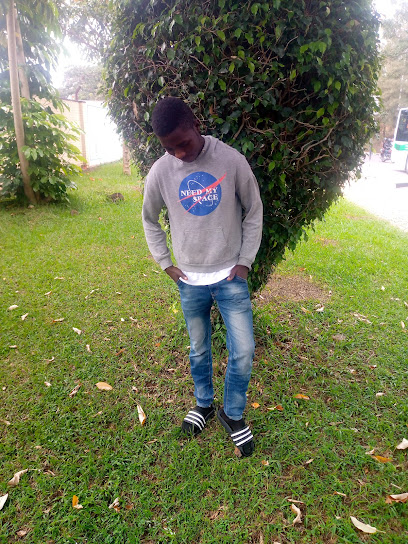
Honours Boat tour
Explore the stunning landscapes of Kibuye, Rwanda, with Honours Boat Tour, where adventure meets tranquility on the beautiful Lake Kivu.
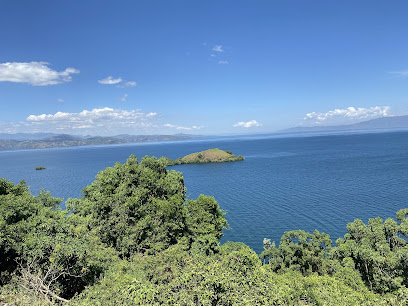
La Cabane Africaine
Experience the heart of Rwandan culture at La Cabane Africaine, a unique restaurant and art space in Kigali offering delicious local cuisine and vibrant artistry.
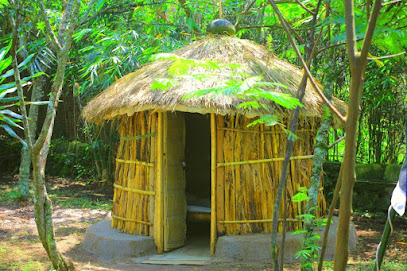
Kenya Air Crash Victims Memorial
Discover the poignant Kenya Air Crash Victims Memorial in Rubavu, a serene haven for reflection and remembrance amidst Rwanda's natural beauty.
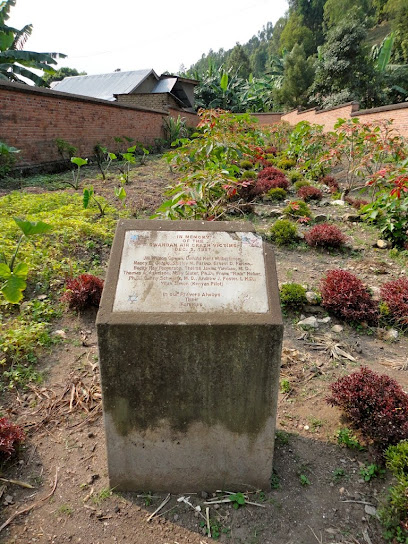
Mukondwe
Discover the tranquil beauty of Mukondwe, a stunning tourist attraction by Lake Kivu, offering breathtaking views and serene landscapes in Kibuye, Rwanda.
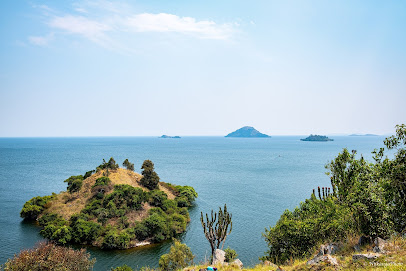
Guide near you
Discover the stunning beauty and vibrant culture of Rubavu, a lakeside gem in Rwanda perfect for adventure seekers and culture enthusiasts alike.
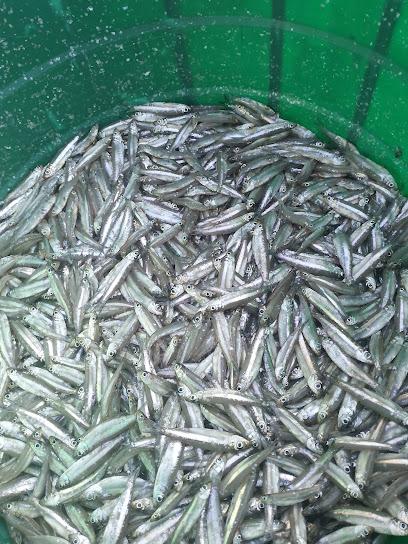
Golf of nyabidahe
Experience the tranquil beauty of Golf of Nyabidahe, a stunning tourist attraction by Lake Kivu in Kibuye, Rwanda.
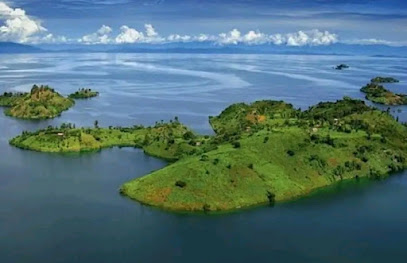
Harmony Safari Expeditions
Explore Rwanda's breathtaking wildlife and landscapes at Harmony Safari Expeditions, a premier tourist attraction in Kigali for nature lovers and adventurers.
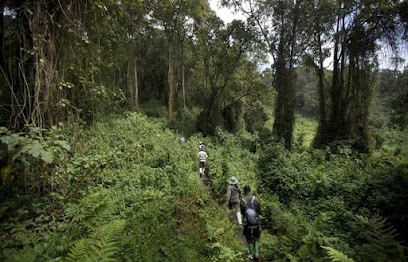
Rwanda Gorilla Safari
Discover the magic of Rwanda with an unforgettable gorilla safari, exploring breathtaking landscapes and engaging in conservation efforts.
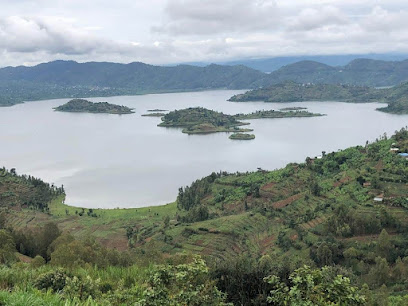
Gishwati Forest National Park Office
Explore Gishwati Forest National Park, a serene sanctuary in Rwanda featuring rich biodiversity and breathtaking landscapes for every nature enthusiast.
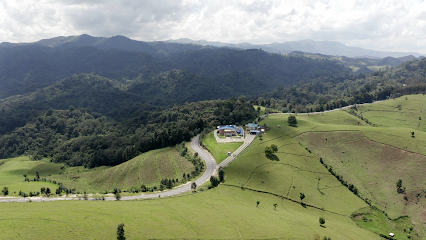
Cyuve waterfall
Explore the enchanting Cyuve Waterfall, a hidden gem in Rwanda, offering stunning views, nature trails, and a serene escape for all travelers.
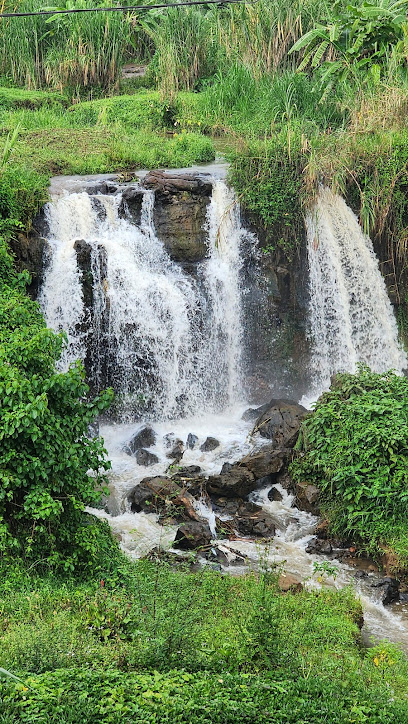
Nengo Mountain
Explore the breathtaking trails and vibrant landscapes of Nengo Mountain, a premier hiking destination near Rubavu, Rwanda.
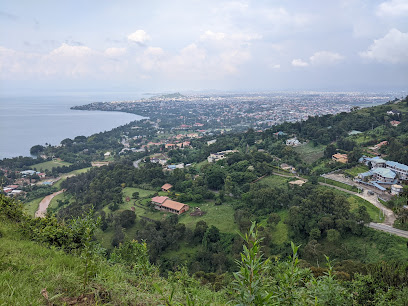
Icyi
Explore the serene beauty of Icyi Park in Rwanda, a tranquil escape amidst nature's splendor perfect for relaxation and family outings.
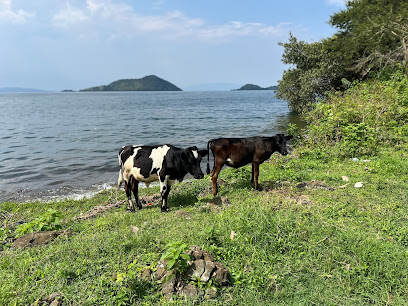
Carrière pierre volcanique
Explore the breathtaking volcanic rock formations at Carrière Pierre Volcanique, a must-visit attraction in Nkuli, Rwanda for nature lovers and photographers.

Cyimbiri Waterfalls
Discover the breathtaking beauty of Cyimbiri Waterfalls in Rwanda, an adventurous hiking area perfect for nature lovers and outdoor enthusiasts.
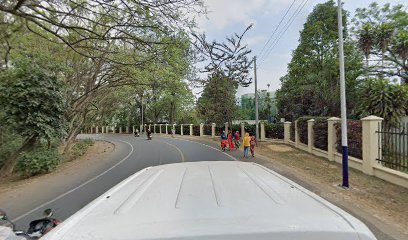
Essential places to dine
The Hut Restaurant and Boutique Hotel
Experience unparalleled Rwandan hospitality at The Hut Restaurant and Boutique Hotel - your culinary haven in Kigali.
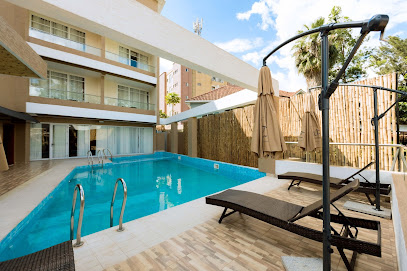
Kurry Kingdom
Experience the rich flavors of North India at Kurry Kingdom - Kigali's premier destination for authentic Indian cuisine.
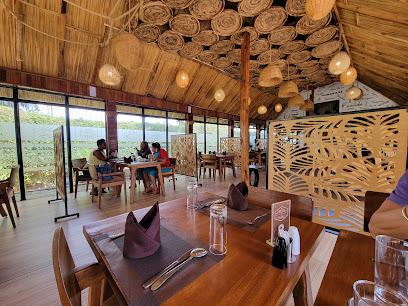
Soy Asian Table
Experience authentic South East Asian flavors at Soy Asian Table in Kigali - where tradition meets modern dining.
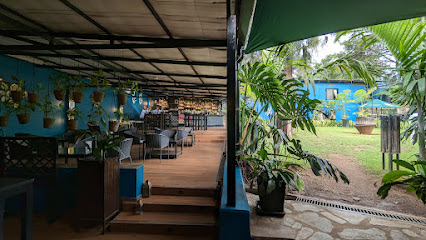
Filini Italian Restaurant
Experience authentic Italian cuisine at Filini Restaurant in Kigali—where delightful flavors meet stunning views.
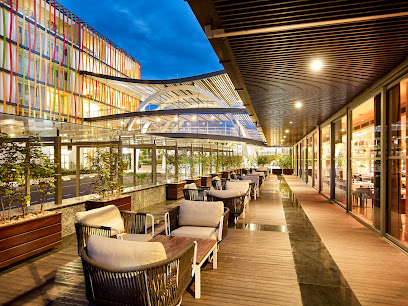
Gishwati-Mukura National Park and Biosphere Reserve
Discover Rwanda's hidden treasure at Gishwati-Mukura National Park – where lush forests meet diverse wildlife in breathtaking landscapes.
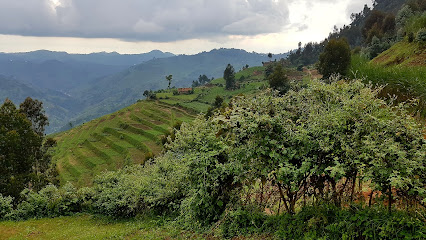
Zaaffran Indian Restaurant
Experience authentic Indian flavors at Zaaffran Indian Restaurant in Kigali – where culinary traditions meet modern dining.
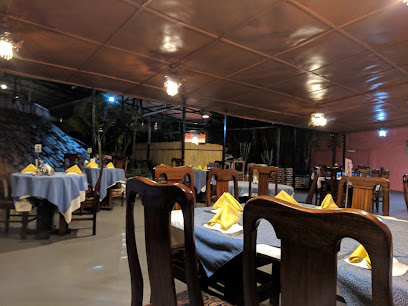
Turambe Shoppe
Experience fresh flavors at Turambe Shoppe - Kigali's premier destination for vibrant salads and wholesome meals.
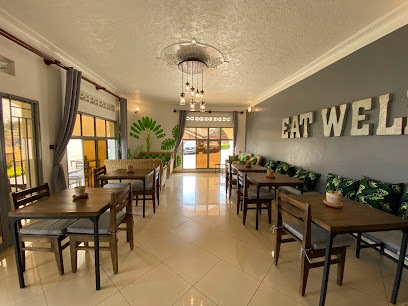
14th Avenue Wine Bar and Restaurant
Experience exquisite Mediterranean cuisine at 14th Avenue Wine Bar and Restaurant in Kigali—where every meal is a celebration of flavor.
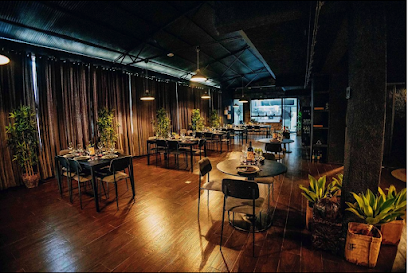
Forest of Hope Guest House, Visit to Gishwati
Discover tranquility at Forest of Hope Guest House amidst Gishwati's stunning landscapes; your gateway to Rwanda's rich biodiversity.

Motherland Park Urugano
Experience authentic Rwandan cuisine at Motherland Park Urugano - where every bite tells a story amidst nature's beauty.

Iwacu Resto
Discover authentic Rwandan flavors at Iwacu Resto, a family-friendly dining experience nestled in Kigali's vibrant Nyamirambo district.
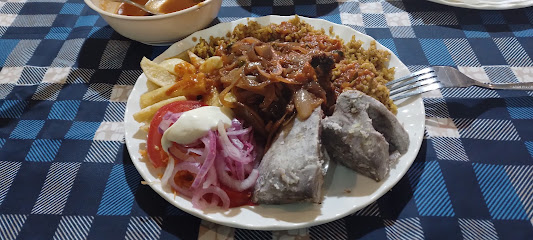
Markets, malls and hidden boutiques
Gishwati-Mukura National Park and Biosphere Reserve
Discover the natural beauty and diverse wildlife of Gishwati-Mukura National Park, a unique biosphere reserve in Rwanda.
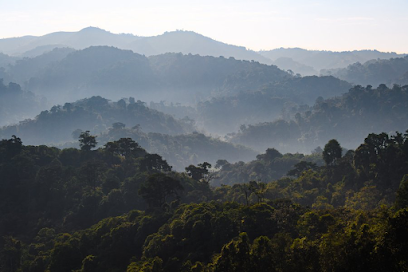
Roots Rwanda Online Shopping
Discover Rwanda's vibrant online shopping scene at Roots Rwanda, your one-stop shop for electronics, local crafts, and more.

NYAKABUNGO Market
Discover Nyakabungo Market: A vibrant produce market showcasing the best of Rwandan agriculture and local culture.
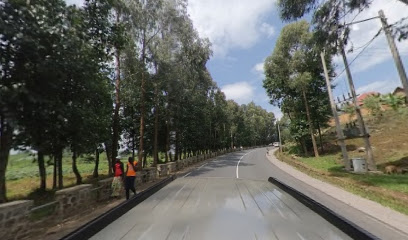
Nkomero Bralirwa Depot
Discover the flavors of Rwanda at Nkomero Bralirwa Depot, a vibrant supermarket offering local products and a taste of culture.
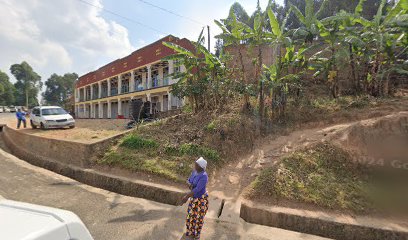
GAKENKE DISTRICT
Explore the breathtaking landscapes and vibrant culture of Gakenke District, a hidden gem in Rwanda perfect for adventure and authentic experiences.

T.s.craft
Immerse yourself in Rwandan culture at T.s.craft, a clothing store in Kanama offering unique, locally crafted fashion and accessories.
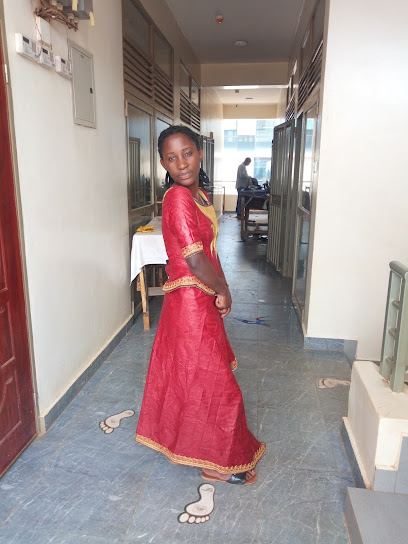
Rutsiro Honey Ltd
Explore Rutsiro Honey Ltd for a unique shopping experience featuring the finest honey products and a taste of Rwandan culture.
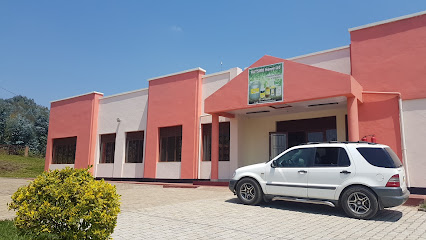
Boutique chez VENANT
Discover artisanal treasures at Boutique chez VENANT in Gisenyi, where local craftsmanship meets contemporary shopping.

TAWUNI Centre
Discover the TAWUNI Centre in Nyamyumba, a vibrant shopping hub offering local and international brands, delicious dining, and family-friendly entertainment.
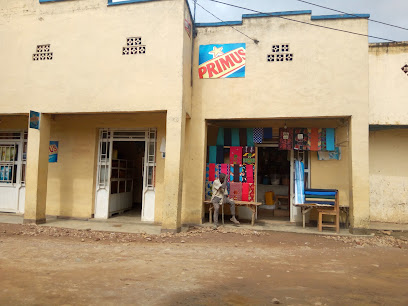
Gishwati Forest National Park Office
Explore Gishwati Forest National Park Office - the gateway to Rwanda's breathtaking biodiversity and lush landscapes, perfect for nature lovers and adventurers.
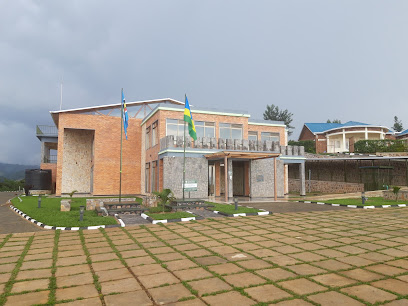
COOVAKARU Handcrafts
Discover the vibrant culture of Rwanda through unique handmade crafts at COOVAKARU Handcrafts in Kayove.
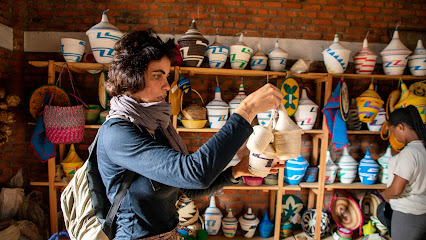
Love To Help Rwanda
Explore the heart of Rwandan craftsmanship at Love To Help Rwanda, a gift shop filled with unique handmade treasures.

Kivu Rwanda Cultural Belt Boutique ( KRCB) Ltd
Explore the Kivu Rwanda Cultural Belt Boutique for unique crafts and authentic Rwandan culture along the stunning Congo Nile Trail.

Gift art store
Explore Gisenyi's Gift Art Store for unique Rwandan crafts and artworks that capture the essence of local culture and artistry.
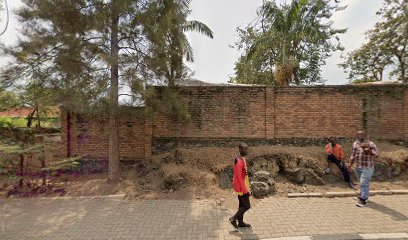
BIRERE DEOGRATIAS
Explore BIRERE DEOGRATIAS in Busoro for a delightful shopping experience, blending local culture with modern retail options.
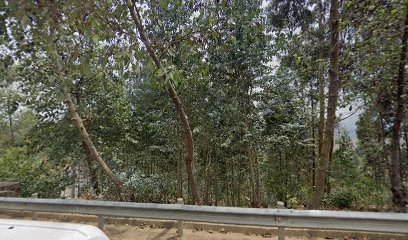
Essential bars & hidden hideouts
La BAMBA
Experience the vibrant nightlife of Gisenyi at La BAMBA, where refreshing drinks and local culture come together for an unforgettable evening.
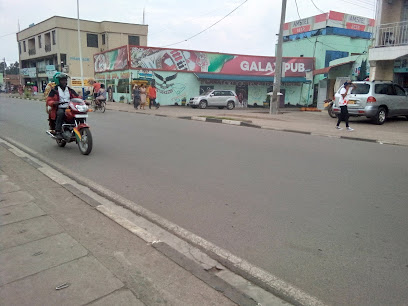
KIVU Rock
Experience the vibrant nightlife at KIVU Rock, where stunning lake views meet local culture in the heart of Rubavu.
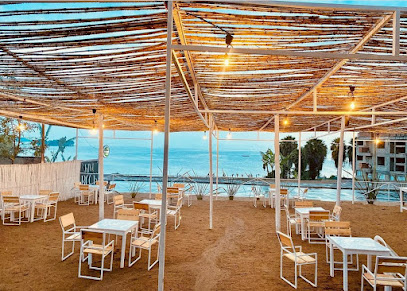
Vista
Discover the vibrant nightlife at Vista, a must-visit bar in Kigufi for delicious drinks and a lively atmosphere.
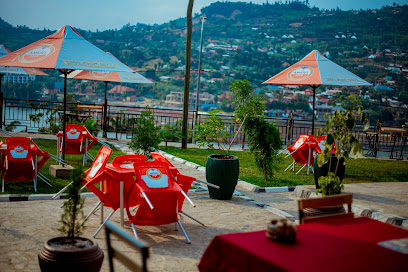
Dhruva baar and restaurant
Discover the vibrant Dhruva Bar and Restaurant in Gisenyi, where local flavors meet a lively atmosphere amidst stunning lake views.
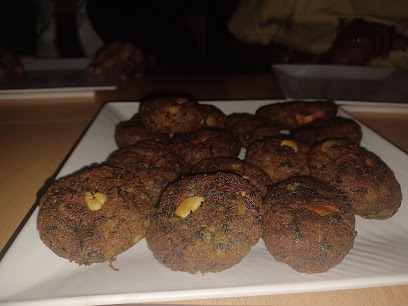
Shinning Bar
Experience the vibrant nightlife at Shinning Bar in Rubavu, where local culture meets refreshing drinks and lively entertainment.
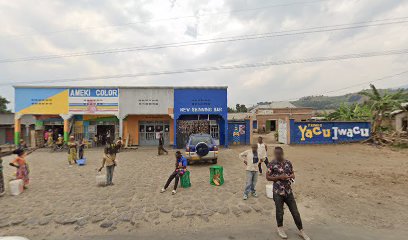
Bar Iriba
Discover the vibrant flavors of Rwanda at Bar Iriba, Rubavu's premier grill bar, where every meal is a celebration of local cuisine.

BAR CHEZ MONIQUE
Experience the heart of Rwandan nightlife at Bar Chez Monique, where refreshing drinks meet a vibrant atmosphere along Kivu Belt Road.
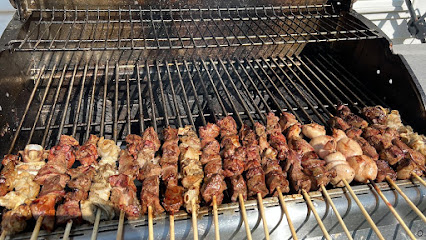
Erica Bar and Restaurant
Experience the vibrant atmosphere of Erica Bar and Restaurant in Rubavu, where local flavors meet a lively ambiance for an unforgettable evening.
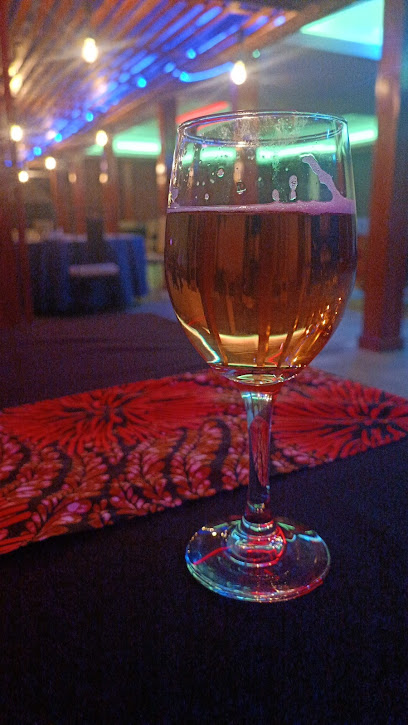
SAWASAWA Bar and restaurant
Discover the vibrant ambiance of SAWASAWA Bar and Restaurant in Rubavu, where local flavors meet breathtaking views and a social atmosphere perfect for travelers.
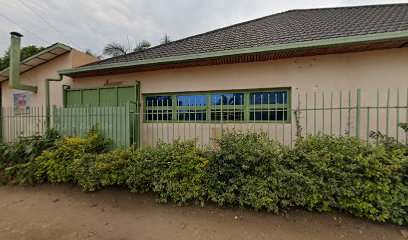
FANTASTIC INN
Experience the lively atmosphere and diverse drink selection at Fantastic Inn, Gisenyi's top bar for locals and travelers alike.

Mahoko / Gisenyi
Experience the vibrant local culture at Mahoko, a hidden bar gem in Gisenyi, Rwanda, known for its friendly atmosphere and unique beverages.

KIBINGO SPECIAL BAR
Experience the vibrant nightlife and local flavors at Kibingo Special Bar in Rubavu, where culture and community come together.
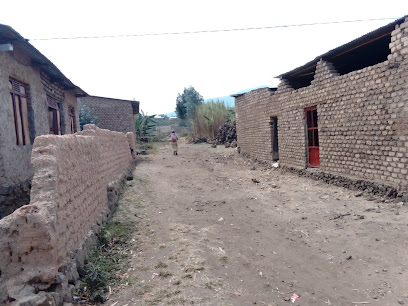
Bar Gacuba
Experience the vibrant atmosphere of Bar Gacuba, a local gem in Gisenyi offering delightful drinks and a taste of Rwandan culture.
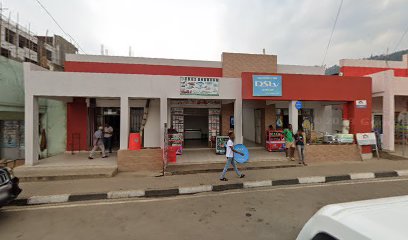
BIG-Bar Kivu Hill
Experience the lively atmosphere of BIG-Bar Kivu Hill on Bugarura Island, where stunning views and local drinks create unforgettable moments.

Local Phrases about Gishwati-Mukura National Park
-
- HelloMuraho
[moo-rah-ho] - GoodbyeMurabeho
[moo-rah-bay-ho] - YesYego
[yeah-go] - NoOya
[oh-ya] - Please/You're welcomeMwiriwe
[mwee-ree-way] - Thank youMurakoze
[moo-rah-koh-zay] - Excuse me/SorryNdasubirwaho
[n-dah-soo-beer-wah-ho] - How are you?Amakuru?
[ah-mah-koo-roo] - Fine. And you?Ni meza. Nawe?
[nee-meh-zah. nah-way] - Do you speak English?Mwifuriza ikinyarwanda?
[mwee-foo-ree-zah ee-keen-yah-rwan-dah] - I don't understandNtazi
[en-tah-zee]
- HelloMuraho
-
- I'd like to see the menu, pleaseNifashishije komeza, kubanjirije
[nee-fah-shee-shee-jay koh-meh-zah, koo-ban-jee-ree-jay] - I don't eat meatSiya gukora ibiryo by'inyama
[see-yah goo-koh-rah ee-beer-yoh bee-een-yah-mah] - Cheers!Amasaro
[ah-mah-sah-roh] - I would like to pay, pleaseNifuzire kubika, kubanjirije
[nee-foo-zee-ray koo-bee-kah, koo-ban-jee-ree-jay]
- I'd like to see the menu, pleaseNifashishije komeza, kubanjirije
-
- Help!Udutereze!
[oo-doo-teh-reh-zay] - Go away!Jya isuri!
[jah ee-soo-ree] - Call the Police!Simbata polisi!
[seem-bah-tah poh-lee-see] - Call a doctor!Simbata dokoteli!
[seem-bah-tah doh-koh-teh-lee] - I'm lostNarangiye
[nah-rahn-gee-yeh] - I'm illNaronda
[nah-rohn-dah]
- Help!Udutereze!
-
- I'd like to buy...Nifuza gukora...
[nee-foo-zah goo-koh-rah] - I'm just lookingNifuza kureba
[nee-foo-zah koo-reh-bah] - How much is it?Ni iki cyatumye?
[nee ee-kee chah-too-mye] - That's too expensiveIyo ni nyirinko
[ee-yoh nee nee-reen-koh] - Can you lower the price?Wibagirwe cyane?
[wee-bah-gee-rweh chyah-nay]
- I'd like to buy...Nifuza gukora...
-
- What time is it?Saa ngapi?
[sah-ah ngah-pee] - It's one o'clockNi saa imwe
[nee sah-ah eem-weh] - Half past (10)Y'igice gito
[ee-gee-chay gee-toh] - MorningMugitondo
[moo-gee-ton-doh] - AfternoonMugitondo w'umugoroba
[moo-gee-ton-doh w'oo-moo-go-roh-bah] - EveningMugitondo w'umugoroba
[moo-gee-ton-doh w'oo-moo-go-roh-bah] - YesterdayEjo
[eh-joh] - TodayEjo
[eh-joh] - TomorrowEjo
[eh-joh] - 1Rimwe
[ree-mweh] - 2Kabiri
[kah-bee-ree] - 3Gatatu
[gah-tah-too] - 4Kane
[kah-nay] - 5Gatanu
[gah-tah-noo] - 6Gatandatu
[gah-tahn-dah-too] - 7Kagatandatu
[kah-gah-tahn-dah-too] - 8Kagatandatu na rimwe
[kah-gah-tahn-dah-too nah ree-mweh] - 9Kagatandatu na kabiri
[kah-gah-tahn-dah-too nah kah-bee-ree] - 10Igice
[ee-gee-chay]
- What time is it?Saa ngapi?
-
- Where's a/the...?Iki kibazo ...?
[ee-kee kee-bah-zoh] - What's the address?Aho adiresi iherereye?
[ah-hoh ah-dee-reh-see ee-heh-reh-ray-yay] - Can you show me (on the map)?Wibagirwe cyane (muri iki gishushanyo)?
[wee-bah-gee-rweh chyah-nay (moo-ree ee-kee gee-shoo-shahn-yoh)] - When's the next (bus)?Igihe cyo gato kijya?
[ee-gee-hay choh gah-toh kee-jyah] - A ticket (to ....)Ingingo (kuri ....)
[een-gee-n-go (koo-ree)]
- Where's a/the...?Iki kibazo ...?
History of Gishwati-Mukura National Park
-
Gishwati-Mukura National Park, nestled in the northwestern region of Rwanda, holds a deep-rooted connection to the indigenous Batwa people. The Batwa, one of Central Africa’s oldest indigenous tribes, have lived in the forests of the Albertine Rift for thousands of years. Their traditional lifestyle of hunting and gathering has been intrinsically linked to the forest, which they regard as sacred. This relationship between the Batwa and the forest underscores the rich cultural heritage and ancient beginnings of the park.
-
During the colonial era, Rwanda’s forests, including Gishwati and Mukura, faced significant threats from agricultural expansion and exploitation. The arrival of European colonizers in the late 19th and early 20th centuries led to widespread deforestation as land was cleared for agriculture and settlement. This period marked the beginning of extensive forest degradation, which would continue to impact the region for decades to come.
-
Following Rwanda’s independence in 1962, the new government focused on agricultural development to sustain the growing population. This led to further encroachment into forested areas, including Gishwati and Mukura. Large tracts of forest were converted into farmland, and the once-thriving ecosystems faced severe fragmentation. By the late 20th century, Gishwati Forest had been reduced to a fraction of its original size, and Mukura Forest was similarly affected.
-
The 1994 Rwandan Genocide had devastating impacts on the country’s human population and its natural environment. The mass displacement of people and the subsequent need for resettlement led to increased pressure on forested areas. Gishwati and Mukura forests saw further degradation as refugees sought land for cultivation and survival. This tragic period not only affected the human population but also accelerated the destruction of vital ecosystems.
-
In response to the critical state of Rwanda’s forests, the government and international conservation organizations began concerted efforts to restore and protect these vital ecosystems. In 2015, Gishwati and Mukura forests were officially gazetted as Gishwati-Mukura National Park. This marked a significant milestone in Rwanda’s conservation history, aiming to rehabilitate the forest, protect biodiversity, and promote sustainable livelihoods for local communities. Conservation efforts have since focused on reforestation, wildlife protection, and community engagement.
-
Gishwati-Mukura National Park is a biodiversity hotspot, home to a variety of flora and fauna, including several endangered species. The park hosts primates like the eastern chimpanzee and the golden monkey, as well as numerous bird species, reptiles, and amphibians. The forest's rich biodiversity and unique ecosystem highlight its ecological significance and the importance of ongoing conservation efforts to ensure its preservation for future generations.
-
The establishment of Gishwati-Mukura National Park has also emphasized the importance of cultural heritage and community involvement in conservation. Local communities, including the Batwa, have been actively engaged in park management and sustainable development initiatives. Programs focusing on eco-tourism, education, and alternative livelihoods aim to balance conservation goals with the needs of the people living in and around the park, fostering a harmonious relationship between humans and nature.
Gishwati-Mukura National Park Essentials
-
Gishwati-Mukura National Park is located in the Northwestern part of Rwanda. The nearest international airport is Kigali International Airport, which is approximately 150 kilometers away. From Kigali, you can take a bus or hire a private car to reach the park. The journey by road typically takes around 3 to 4 hours. There are also several tour operators offering guided trips to the park.
-
Within the park, the best way to get around is on foot through guided hiking tours. For traveling to and from the park, private cars and taxis are the most convenient options. Public buses also operate from Kigali to the towns of Rubavu and Karongi, which are close to the park. Renting a 4x4 vehicle is advisable for those wishing to explore the park and the surrounding areas more freely.
-
The official currency in Rwanda is the Rwandan Franc (RWF). Credit cards are accepted in major hotels and some restaurants, but it is advisable to carry cash for use in smaller establishments and rural areas. ATMs are available in nearby towns such as Rubavu and Karongi, but it is wise to withdraw sufficient cash in Kigali before traveling to the park.
-
Gishwati-Mukura National Park is generally a safe destination for tourists. However, standard precautions should be taken, such as avoiding walking alone at night in unfamiliar areas and keeping an eye on your belongings. There are no specific high-crime areas targeting tourists within the park, but it is always best to stay vigilant and aware of your surroundings.
-
In case of emergency, dial 112 for immediate assistance. The nearest medical facilities are in the towns of Rubavu and Karongi. It is highly recommended to have travel insurance that covers medical emergencies. For minor health issues, there are pharmacies in these towns where you can purchase over-the-counter medications.
-
Fashion: Do dress modestly; lightweight, long-sleeved clothing is recommended to protect against insects. Avoid wearing flashy jewelry. Religion: Do respect local customs and traditions. When visiting nearby communities, be respectful of their cultural practices. Public Transport: Do be respectful and give up your seat to elderly passengers. Don’t eat or drink on public transport. Greetings: Do greet people with a handshake. A friendly 'Muraho' (Hello) is appreciated. Eating & Drinking: Do try local delicacies and accept food offerings graciously. Don’t refuse hospitality, as it is considered impolite.
-
To experience Gishwati-Mukura National Park like a local, engage with the park rangers and guides who have extensive knowledge about the flora and fauna. Participate in community-based tourism initiatives that support local conservation efforts. Don’t miss the chance to visit nearby tea plantations and learn about the tea production process. For a unique experience, consider staying at eco-friendly lodges that offer a closer connection to nature.
Nearby Cities to Gishwati-Mukura National Park
-
Things To Do in Gisenyi
-
Things To Do in Kibuye
-
Things To Do in Karongi
-
Things To Do in Ruhengeri
-
Things To Do in Muhanga
-
Things To Do in Kigali
-
Things To Do in Butare
-
Things To Do in Nyamata
-
Things To Do in Kirundo
-
Things To Do in Nyagatare
-
Things To Do in Cibitoke
-
Things To Do in Kayanza
-
Things To Do in Ngozi
-
Things To Do in Muyinga
-
Things To Do in Muramvya





